When you are having pain and mobility issues in your lumbar (lower back) or cervical (neck) area, you can choose to get disc replacement surgery done. Of course, you should consult your orthopaedic surgeons before making this decision. A proper evaluation is important before going through the surgical procedure for your spine. You are under general anaesthesia during these surgeries and will not feel any pain. Lumbar spine disk replacement is used to treat the lower back (lumbar) area. This is undertaken to resolve spinal stenosis or disc problems, smoothen normal backbone movement. This kind of surgery is usually done for only one disk, though sometimes, two adjacent disk levels may need to be changed. Cervical disc replacement or total disc arthroplasty or artificial disc replacement is when a damaged cervical disc is replaced with metal or polymer prosthetic disk.
Switzerland has exceptional hospitals, clinics, medical centres and rehabilitation centres where you can get Disk Replacement surgery done. This medical and surgical infrastructure is equipped with the latest technologies and greatly refined and experienced orthopaedic spine surgeons. Some hospitals where you can get Disc Replacement in Switzerland are, Hirslanden Klinik, Zurich Hirslanden Clinique La Colline, Geneva Pyramide Specialized Hospital, Zurich Hirslanden Klinik Im Park, Zurich Klinik Permanence, Bern Klinik Belair, Schaffhausen Klink Am Rosenberg, St, Gallen Klinik Birshof, Munchenstein/Basel Salem Spital, Bern Hirslanden Klinik, Aarau
Disc Replacement cost in Switzerland is US$ 40000 which is much lesser than the disc replacement cost in the United States of America i.e., US$ 55,000 to US$ 58,000.
| Country | Cost | Local_currency |
|---|---|---|
| Greece | USD 18000 | Greece 16560 |
| India | USD 5450 | India 453168 |
| Poland | USD 10210 | Poland 41248 |
| South Korea | USD 25000 | South Korea 33567250 |
| Spain | USD 21910 | Spain 20157 |
| Thailand | USD 12400 | Thailand 442060 |
| Turkey | USD 6100 | Turkey 183854 |
| United Arab Emirates | USD 22120 | United Arab Emirates 81180 |
| United Kingdom | USD 40000 | United Kingdom 31600 |
Treatment cost
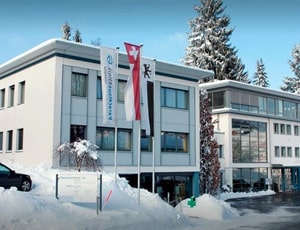
Apart from in-detail treatment procedures available, Paracelsus Clinic located in Lustmuhle, Switzerland has a wide variety of facilities available for International Patients. Some of the facilities which are provided by them are Accommodation, Airport Transfer, Choice of Meals, Interpreter, SIM, TV inside room. Also listed below are some of the most prominent infrastructural details:

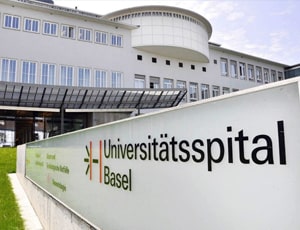
University Hospital located in Basel, Switzerland is accredited by ISO. Also listed below are some of the most prominent infrastructural details:
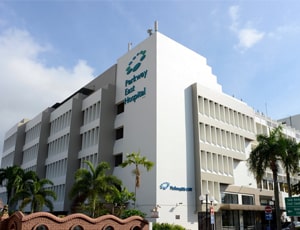
Parkway East Hospital located in Joo Chiat Pl, Singapore is accredited by JCI. Also listed below are some of the most prominent infrastructural details:
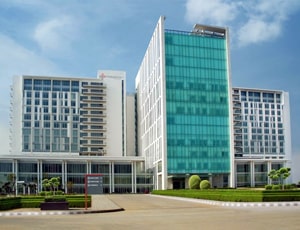
Types of Disc Replacement ( Cervical /Lumber) in Medanta - The Medicity and its associated cost
| Treatment Option | Approximate Cost Range (USD) | Approximate Cost Range (INR) |
|---|---|---|
| Disc Replacement (Overall) | 7319 - 11278 | 590702 - 909722 |
| Cervical Disc Replacement | 5619 - 9011 | 466179 - 725991 |
| Lumbar Disc Replacement | 7254 - 11188 | 595462 - 903995 |
DOCTORS IN 14 SPECIALITIES
FACILITIES & AMENITIES
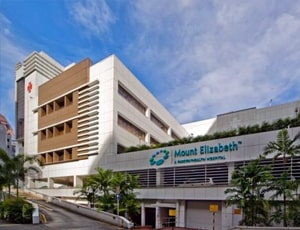
Mount Elizabeth Hospital located in Singapore, Singapore is accredited by JCI. Also listed below are some of the most prominent infrastructural details:
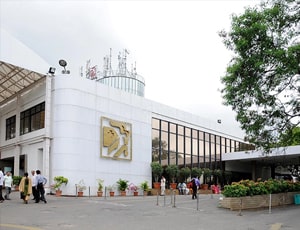
Types of Disc Replacement ( Cervical /Lumber) in Apollo Hospitals and its associated cost
| Treatment Option | Approximate Cost Range (USD) | Approximate Cost Range (INR) |
|---|---|---|
| Disc Replacement (Overall) | 7449 - 11074 | 599782 - 926564 |
| Cervical Disc Replacement | 5537 - 9166 | 465450 - 728201 |
| Lumbar Disc Replacement | 7294 - 11069 | 611745 - 915634 |
DOCTORS IN 14 SPECIALITIES
FACILITIES & AMENITIES
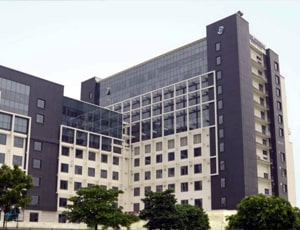
Types of Disc Replacement ( Cervical /Lumber) in Venkateshwar Hospital and its associated cost
| Treatment Option | Approximate Cost Range (USD) | Approximate Cost Range (INR) |
|---|---|---|
| Disc Replacement (Overall) | 6602 - 10150 | 542577 - 835738 |
| Cervical Disc Replacement | 5089 - 8142 | 415740 - 667554 |
| Lumbar Disc Replacement | 6567 - 10164 | 540841 - 830930 |
DOCTORS IN 13 SPECIALITIES
FACILITIES & AMENITIES
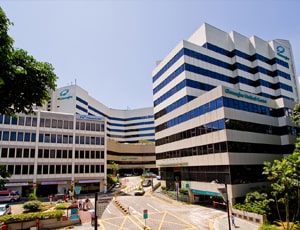
Gleneagles Hospital located in Napier Road, Singapore is accredited by JCI. Also listed below are some of the most prominent infrastructural details:
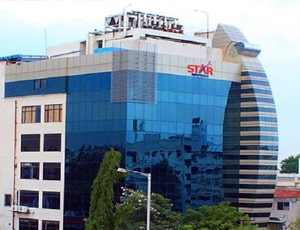
Types of Disc Replacement ( Cervical /Lumber) in Star Hospitals and its associated cost
| Treatment Option | Approximate Cost Range (USD) | Approximate Cost Range (INR) |
|---|---|---|
| Disc Replacement (Overall) | 6003 - 9483 | 497687 - 772449 |
| Cervical Disc Replacement | 4613 - 7522 | 383868 - 604639 |
| Lumbar Disc Replacement | 5999 - 9447 | 504042 - 770688 |
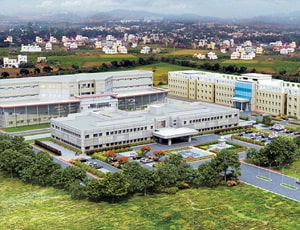
Types of Disc Replacement ( Cervical /Lumber) in Global Health City and its associated cost
| Treatment Option | Approximate Cost Range (USD) | Approximate Cost Range (INR) |
|---|---|---|
| Disc Replacement (Overall) | 7161 - 11095 | 587041 - 910000 |
| Cervical Disc Replacement | 5678 - 8953 | 461448 - 740950 |
| Lumbar Disc Replacement | 7180 - 11035 | 606649 - 914917 |
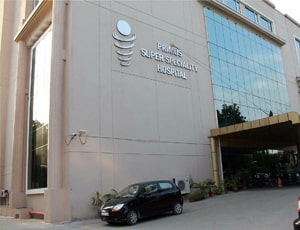
Types of Disc Replacement ( Cervical /Lumber) in Primus Super Speciality Hospital and its associated cost
| Treatment Option | Approximate Cost Range (USD) | Approximate Cost Range (INR) |
|---|---|---|
| Disc Replacement (Overall) | 6611 - 10169 | 540712 - 832194 |
| Cervical Disc Replacement | 5070 - 8101 | 417632 - 667020 |
| Lumbar Disc Replacement | 6619 - 10182 | 541258 - 834160 |
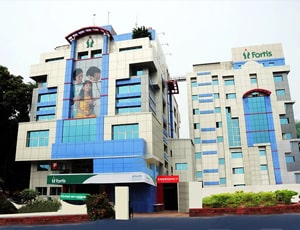
Types of Disc Replacement ( Cervical /Lumber) in Fortis Malar Hospital and its associated cost
| Treatment Option | Approximate Cost Range (USD) | Approximate Cost Range (INR) |
|---|---|---|
| Disc Replacement (Overall) | 6612 - 10196 | 543125 - 833321 |
| Cervical Disc Replacement | 5094 - 8121 | 416178 - 664491 |
| Lumbar Disc Replacement | 6612 - 10170 | 540562 - 831413 |
DOCTORS IN 9 SPECIALITIES
FACILITIES & AMENITIES
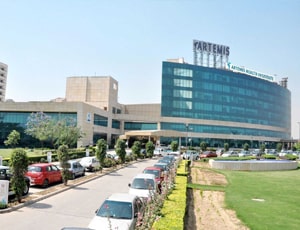
Types of Disc Replacement ( Cervical /Lumber) in Artemis Health Institute and its associated cost
| Treatment Option | Approximate Cost Range (USD) | Approximate Cost Range (INR) |
|---|---|---|
| Disc Replacement (Overall) | 7399 - 11375 | 612623 - 909882 |
| Cervical Disc Replacement | 5742 - 8961 | 461578 - 753982 |
| Lumbar Disc Replacement | 7421 - 11043 | 605492 - 913610 |
DOCTORS IN 15 SPECIALITIES
FACILITIES & AMENITIES
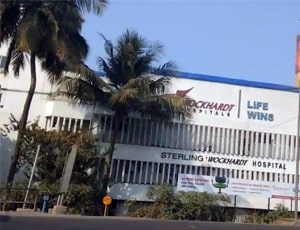
Types of Disc Replacement ( Cervical /Lumber) in Sterling Wockhardt Hospital and its associated cost
| Treatment Option | Approximate Cost Range (USD) | Approximate Cost Range (INR) |
|---|---|---|
| Disc Replacement (Overall) | 6572 - 10164 | 540480 - 835827 |
| Cervical Disc Replacement | 5091 - 8107 | 416066 - 668117 |
| Lumbar Disc Replacement | 6614 - 10192 | 540996 - 831626 |
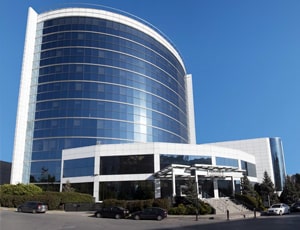
Types of Disc Replacement ( Cervical /Lumber) in Medicana International Istanbul and its associated cost
| Treatment Option | Approximate Cost Range (USD) | Approximate Cost Range (TRY) |
|---|---|---|
| Disc Replacement (Overall) | 5566 - 10021 | 167371 - 304097 |
| Cervical Disc Replacement | 3427 - 7986 | 100133 - 238724 |
| Lumbar Disc Replacement | 5732 - 10113 | 171324 - 309142 |
DOCTORS IN 10 SPECIALITIES
FACILITIES & AMENITIES
The spinal cord is a linear arrangement of many small bones known as vertebrae. These vertebrae consist of spaces between them known as intervertebral spaces. They are filled with cartilaginous structures that provide a cushioning effect to the vertebrae and support the movement of the spine. These cartilaginous structures are called Intervertebral discs.
Any pathology of the intervertebral discs such as disc herniation (slipping of the disc from between the vertebrae), ruptured disc, or degenerative disc disease may cause severe back pain due to nerve impingement, indicating the need for either partial or total disc replacement. In partial disc replacement surgery, only a portion of the cartilaginous disc is replaced by the artificial disc, while the total disc is replaced in the total disc replacement surgery.
Cervical disc degeneration and disc rupture may cause chronic neck pain radiating towards the arm. Thoracic disc degeneration may cause chronic upper/ mid back pain while lumbar disc degeneration may cause chronic lower back pain.
Depending on the site of injury, any one of the following three types of incisions are made:
Once the incision is made, the following steps are performed:
Step 1: The organs are retracted once an incision is made to enable visibility
Step 2: The damaged or protruding disc is removed
Step 3: An artificial disc in place of excised disc is placed
Step 4 The artificial disc is secured to the adjacent vertebrae
Step 5: A sealing material between the frictional surfaces of the artificial disc is placed, if required
Step 6: The incision is surgically closed
You may be discharged after two to four days, after a thorough evaluation by the physical therapists. You are taught the proper techniques of getting in and out of bed before discharge from the hospital. You should avoid bending or twisting for the first two to four weeks to avoid straining the surgical site. You may be advised to use braces if your condition requires support in the lower back.
You may recover and get back to normal activities within three weeks after disc replacement surgery. Studies reveal that patients who successfully undergo total disc replacement surgery remain asymptomatic and free from chronic back pain for an average of 8.7 years.
The recovery time after total disc replacement is significantly less than that of spinal fusion surgery. The mobility is not compromised, and the prognosis is good. The success rate of the disc replacement surgery is around 98 percent.
Ask your healthcare adviser for the best multiple options and choose the one that meets your expectations
Different hospitals have different pricing policy when it comes to the cost of Disc Replacement ( Cervical /Lumber) in Switzerland. Some of the best hospitals for Disc Replacement ( Cervical /Lumber) offer a comprehensive package that covers the end-to-end expenses related to investigations and treatment of the patient. The treatment cost usually includes the expenses related to hospitalization, surgery, nursing, medicines, and anesthesia. Post-surgical complications, new findings and delayed recovery may have an impact on the total Disc Replacement ( Cervical /Lumber) cost in Switzerland.
Disc Replacement ( Cervical /Lumber) in Switzerland is offered by multiple hospitals across the country. For quick reference, the following are some of the leading hospitals for Disc Replacement ( Cervical /Lumber) in Switzerland:
After Disc Replacement ( Cervical /Lumber) in Switzerland, the patient is supposed to stay in guest house for another 21 days. This is important to ensure that the surgery was successful. During this time, control and follow-up tests take place to check for medical fitness.
Apart from the Disc Replacement ( Cervical /Lumber) cost, the patient may have to pay for additional daily expenses such as for guest house after discharge and meals. The per day extra expenses in Switzerland per person are about USD 50 per person.
Some of the cpopular cities in Switzerland that offer Disc Replacement ( Cervical /Lumber) include the following:
The patient is supposed to stay at the hospital for about 3 days after Disc Replacement ( Cervical /Lumber) for monitoring and care. The doctors team review the patient's recovery during this time with the help of blood tests and imaging scans. Once they feel that everything is on track, the patient is discharged.
There are more than 2 hospitals that offer Disc Replacement ( Cervical /Lumber) in Switzerland. The above mentioned hospitals have the required infrastructure and a dedicated unit where patients can be treated. Apart from good services, the hospitals are known to follow all standard and legal guidelines as dictated by the local medical affairs body or organization.